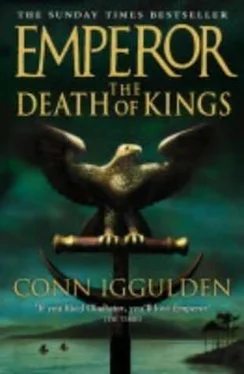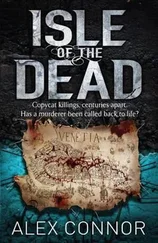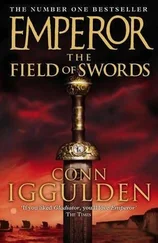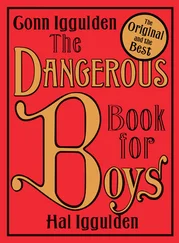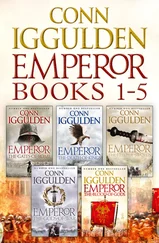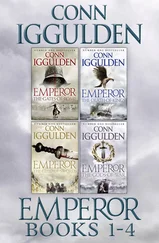Sighing, he poured himself a third cup of wine, despite the acid feeling in his empty stomach as it rebelled at such punishment so early in the day. He ignored the discomfort irritably as he tipped it back. In a little while, he would have to tell his sons that they had cost lives by not moving fast enough during the night.
He drank more and more as the day wore on and the scouts returned on lathered mounts with nothing to report. Of all the camp, only Mithridates the king had drunk himself to sleep as night fell.
***
Julius knew the estimates of the short night raid were going to be vague or exaggerated. It was the nature of soldiers to claim greater success than they had achieved. Yet even allowing for that, he thought they had reduced Mithridates' force by between eight hundred and a thousand, losing only eleven of their own. Those men would not be buried under the eyes of Roman gods. There had been no time to collect the bodies, but it was still a thorn under the skin of the veterans, who had never liked to leave their own in enemy hands.
The younger men had released some of the night's tension as soon as they reached the safety of the tree line in the hills and Julius had given permission to stand down. They had whooped and cheered until they were hoarse, while the veterans looked on smiling, more concerned with cleaning and oiling their equipment than celebrating.
Quertorus had sent out fifty of their best hunters to bring back meat, and by mid-morning had a steaming meal ready, roasting hares and deer together on small fires. Any flame was a risk, but the trees would break up the smoke and Julius knew they needed the rejuvenation and warmth of hot meat, and only insisted the fires be scattered as soon as the last of the hunters' kills were cooked.
The difference that age makes was clear that afternoon. The young recruits were fully recovered, moving energetically about the camp in small groups, chatting and laughing. The veterans lay like the dead, without even turning in sleep, so they woke stiff and cramped. Bruises spread under their skins, appearing where there had been no mark the night before. The younger ones shrugged off their wounds, but didn't mock the veterans for their stiffness. They had seen their skill and not their age.
Julius had found Cornix chewing amiably as he sat close to the cooking fires, obviously enjoying the warmth in his old bones.
“You survived, then,” Julius said, genuinely pleased the old man had lived through the chaos of the attack. The knee was still heavily wrapped and flat against the ground to rest.
Cornix gestured in welcome, waving a piece of meat vaguely. “They couldn't kill me, right enough,” he agreed, sucking dry the meat he held before pressing it into his cheek to soften enough for chewing. “There were a lot of them, I noticed.” His eyes searched out Julius's, full of interest in the young man.
“Eight or nine thousand left, we think,” Julius said.
Cornix frowned. “It'll take forever to kill that many,” he observed seriously as he worked the piece of meat around his mouth, ruminating.
Julius grinned at the old man. “Yes, well. Craftsmen take time over their work,” he said.
Cornix nodded in agreement, a smile breaking over his wrinkled face despite himself.
Julius left him with his meal and found Gaditicus. Touring the camp together, they visited each of the sentries, who stood in threes so that there would always be one to give warning of an attack. Each group was in clear sight of the next all the way around the camp. It used a lot of men, but Julius had ordered short watches of only two hours, so the changes came quickly and the night passed without alarm.
The following day, as darkness fell early in the winter evening, they marched out of the woods and once again attacked the camp of Mithridates.
Antonidus paced up and down the lushly furnished room, his skin mottled with anger. The only other occupant, lounging on a soft purple couch, was the corpulent figure of the senator, Cato. The eyes that watched Antonidus seemed small, lost in the fleshy expanse of the sweating face. They gleamed with intrigue as they followed the steps of Sulla's erstwhile general, tracking up and down the marble. Cato grimaced slightly as he saw the road dust that clung to Antonidus. The man should have known better than to demand a meeting before he had even washed himself.
“I have no new information, Senator. Not a scrap of it,” Antonidus said.
Cato sighed theatrically, reaching out a pudgy hand to the arm of his couch and pulling himself upright. The fingers that gripped the wood were slick and sticky with sugary residues from the dinner Antonidus had interrupted. Idly, Cato sucked them clean as he waited for the irritable man to find calm. Sulla's dog had never been a patient man, he knew. Even when the Dictator had been alive, Antonidus had conspired and wheedled for more authority and action where none was needed. After the rather sordid assassination, Antonidus had acted outrageously, far exceeding his authority as he searched for the killers. Cato had been forced to throw his support behind the man when his activities were discussed in Senate, or see him brought down by those he had offended. It was a fragile protection even then and Cato wondered if the pacing general knew how close he was to destruction. Antonidus had offended almost everyone that mattered in the city in the previous months, questioning even those who were above suspicion.
Cato wondered to himself how Sulla had been able to stand the grim company of his general. He soon tired of it himself.
“Have you considered that you may not find whoever ordered the assassination?” he asked.
Antonidus stopped his pacing as he spoke, spinning to face the senator.
“I will not fail in this. It has taken longer than I thought, but eventually someone will talk or some evidence will be found that will point a bloody finger, and I will have my man.”
Cato watched him carefully, noting the manic glitter of his eyes. Dangerously obsessive, he thought, considering having the man quietly removed before he caused any more trouble. The public efforts had been made, and if Sulla was not avenged, well, the city would continue regardless, whether Antonidus was successful or not.
“It could take years, you know,” Cato continued. “Or you could die without finding your culprit. It would not be so strange. If anyone was going to reveal themselves or be betrayed, I did think it would happen soon after the deed, but nothing points that bloody finger of yours and may never do so. It may be time to give up the chase, Antonidus.”
The black eyes bored into him, but Cato was unaffected. He cared nothing at all for the man's obsession, for all he had been content to let him run wild around the houses of Rome for a while. Sulla was dead and ashes. Maybe it was time to bring the dog to heel.
Antonidus seemed to sense the thoughts in the flat, bored expression with which Cato returned his glare.
“Give me a little longer, Senator,” he asked, his angry looks replaced by a sudden wariness.
Perhaps after all, he did know how Cato protected him from the outrage of the other senators, the fat man mused. Dismissively, he looked away and Antonidus spoke hurriedly.
“I am almost sure the killing was at the order of one of three men. Any one of them could have arranged it, and they were all supporters of Marius before the war.”
“Who are these dangerous men?” Cato inquired archly, though he could have reeled off the names as easily as the general. The informers reported to him before Antonidus, after all, as well they should have, with Cato's money in their purses.
“Pompey and Cinna are most likely, I think. Perhaps Cinna most of all, as Sulla was… interested in his daughter. And Crassus, the last of them. Those three had the money and influence to buy a murder, and they were no friends to Sulla. Or they could have acted together, with Crassus providing the money and Pompey the contacts, for example.”
Читать дальше
Конец ознакомительного отрывка
Купить книгу
